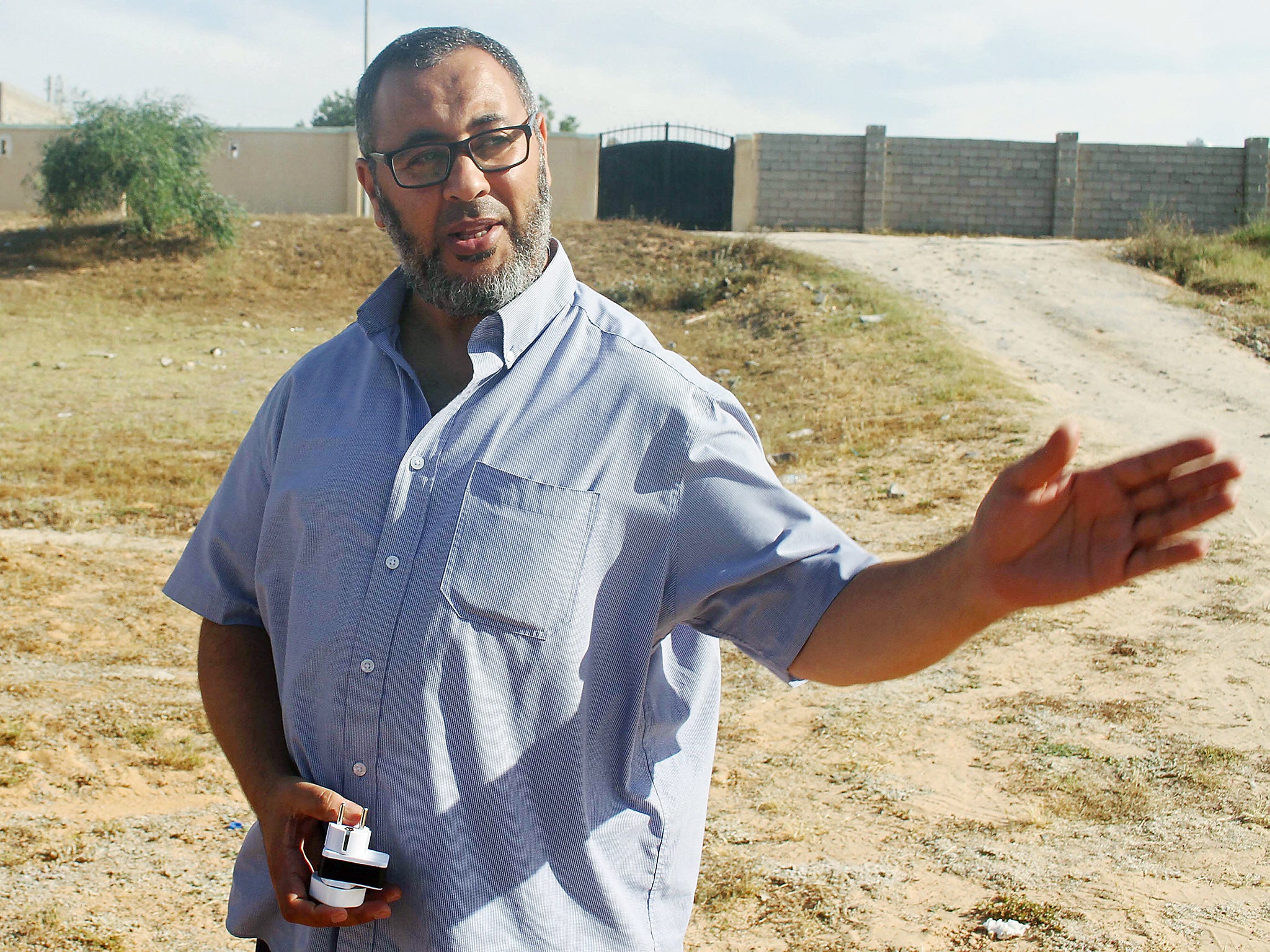Manchester Arena bomber’s father’s fingerprints ‘were inside car used to store explosives’
Ramadan Abedi is among four suspects police want to question over 2017 terror attack

Fingerprints belonging to the Manchester Arena bomber’s father were found in a car used to store explosives, a legal ruling has revealed.
Ramadan Abedi is among six people police want to question over the 2017 terror attack, which left 22 victims dead.
He is a suspect, alongside the bomber’s mother and two other associates, while police want to speak to two other people to eliminate them from the investigation.
A document made public for the first time said that his fingerprints were present inside a Nissan Micra purchased by his two sons weeks before the bombing.
The trial of Hashem Abedi heard the vehicle was “a de facto storage facility for the various items of bomb-making equipment” and explosives the brothers had prepared.
The pair used it for little over 24 hours in April 2017 to move their material out of a rented flat and store it safely before they flew to Libya with their parents.
The Old Bailey heard that the Micra was parked up, packed with parts of the deadly bomb, hours before the family left the UK.
Only Salman Abedi returned on 18 May 2017, travelling straight from Manchester airport to the car and collecting its contents to finish assembling his device.
When police recovered the Micra after the attack, it was found to contain traces of the explosive triacetone triperoxide (TATP) alongside unused bomb components and chemicals.
Salman, Hashem and Ramadan’s fingerprints were also inside the vehicle.
The chair of a public inquiry into the bombing ruled that the information could be made public after Greater Manchester Police (GMP) applied for a restriction.
Sir John Saunders said the disclosure did not risk prejudicing any future criminal investigations.
The restriction application was opposed by media organisations, some bereaved families and the counsel to the inquiry.
Hashem Abedi, 23, was jailed for life with a minimum of 55 years in August after being convicted of murder for his part in the plot.
In his ruling, Sir John said police wanted to question Ramadan over “forensic links” with evidence in the case.
But he said the father had not returned to the UK after travelling to Libya in April 2017, adding: “I have had to bear in mind the likelihood of Ramadan being available for interview and, if he is, the likelihood of him answering questions.”
Sir John added: “Five of the six [wanted] individuals are out of the jurisdiction, there is no immediate prospect of extraditing them and GMP have indicated to me that the threshold for extradition is not met.”
Police also want to question the bomber’s mother, Samia Tabbal, over comments made by two other people that may constitute “vital evidence”.
Sir John said he believed that although the parents had travelled to and from Libya frequently in the past, it was “very unlikely they will return in the present situation”.
The two other named suspects, Mohammed Soliman and Elyas Elmehdi, are also out of the country.
During Hashem’s trial it emerged that Mr Soliman was a friend of the Abedi brothers, and bought 10 litres of sulphuric acid on their behalf.
The court heard he was in a “good deal of contact” with the pair, who lied to friends and relatives about their need for chemicals and frequently said they were for a battery.
Mr Elmehdi allegedly allowed Salman to park the Micra, containing explosives, outside his home in Rusholme on the day before he left for Libya in April 2017.
The ruling said there may be “further evidence to connect” Mr Elmehdi to the car, and contradict when he said in a police interview.
He was questioned by police in the aftermath of the attack, but later released and has now reportedly fled to Libya after being convicted in his absence of serious drugs offences.
Police also want to trace Majdi Alamari, who is in Libya, and Anas Abuhdaima, whose whereabouts in the UK are unknown, in order to speak to them and eliminate them from the investigation if possible.




